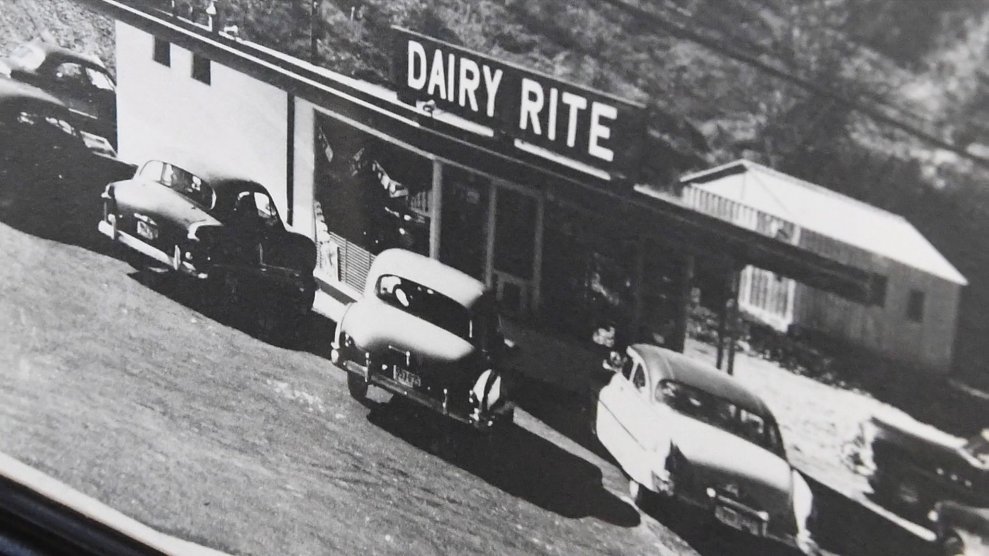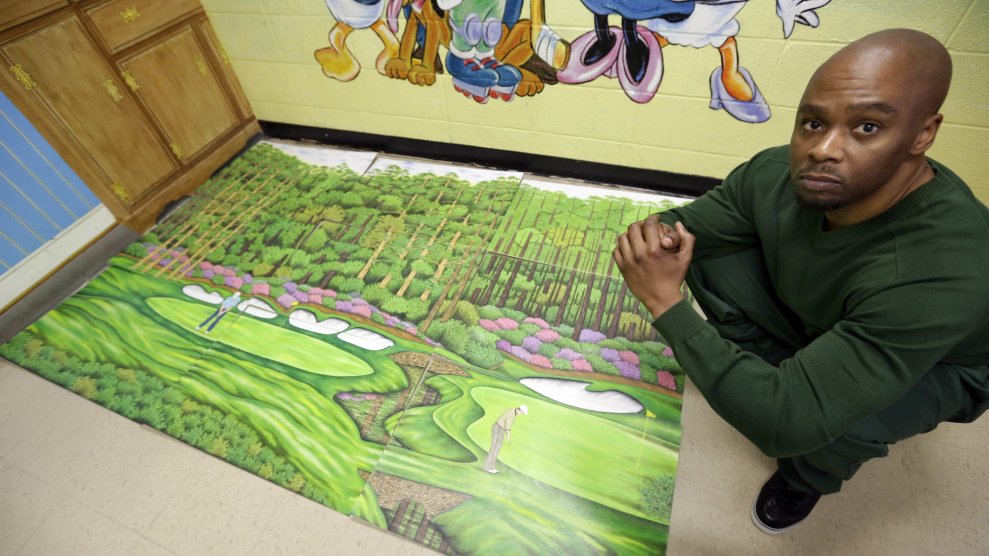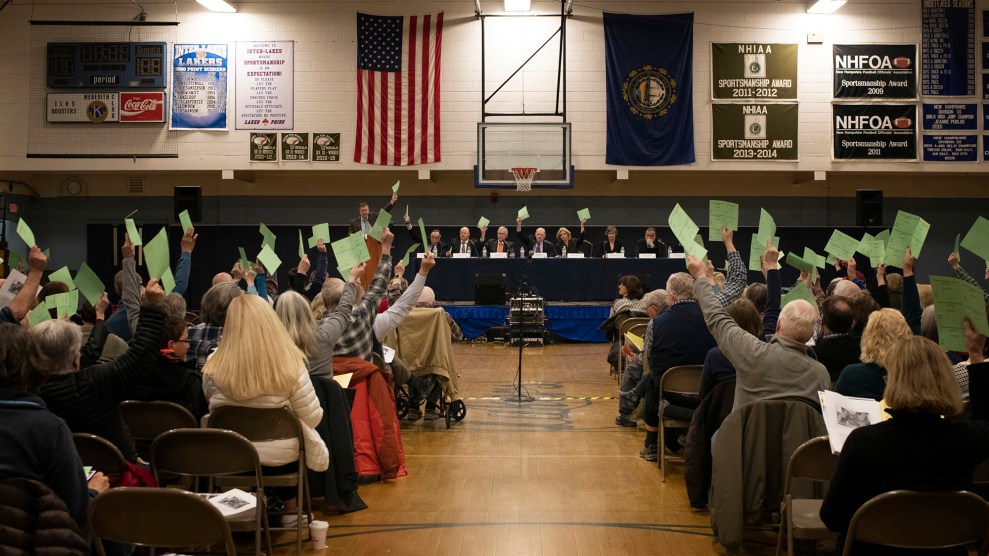
Protesters demonstrate outside the Supreme Court in Washington, DC to oppose the Senate confirmation of Brett Kavanaugh.Chris Kleponis/AFP/Getty
Senator Heidi Heitkamp knew her “no” vote might sink her reelection campaign in North Dakota this November. But there was no way she was going to vote to confirm Brett Kavanaugh for the Supreme Court, not after what she heard—and not after what her mother, who died at 88 in April, lived through.
Heitkamp’s mother had been sexually assaulted as a teenager, she told the New York Times, and “it did not make my mom less strong that she was a victim.” Her comments came after her challenger, Rep. Kevin Cramer (R-N.D.), suggested that the #MeToo movement made victims seem weak. In an emotional rebuttal, Heitkamp strongly insisted otherwise: “She got stronger and she made us strong. And to suggest that this movement doesn’t make women strong and stronger is really unfortunate.”
Many survivors, distressed at the Kavanaugh confirmation and the attacks against one of his accusers, Christine Blasey Ford, showed their own courage and came forward to share their stories after the bruising hearings. A 73-year-old retired copy editor from the Los Angeles Times said she was drugged and raped in the early 1980s by a longtime editor, who has since died. The paper’s current editor said he was deeply troubled by the account, which also spurred other female employees to share their stories.
Mother Jones readers also recounted their own sexual assaults after witnessing the hearings, including the sense of hopelessness they felt and the weight of a secret many kept for years. Despite the reopening of emotional scars, several said they were stronger and motivated to move forward.
“Dr. Blasey’s courage has lit a fire for victims and we are empowered,” one reader, Jennifer Schoon, wrote to us. “Our trauma only makes us stronger. Stand up, speak out, support each other and work toward a better world, together.”
You can hear more voices discussing how survivors are moving forward on today’s episode of the Mother Jones Podcast:
And if you or someone you know is a survivor of sexual violence, know that there are resources to help. You can also call the National Sexual Assault Telephone Hotline at 800-656-HOPE.
Recharge is a weekly newsletter full of stories that will energize your inner hellraiser. Sign up at the bottom of the story.
-
A real-life Good Will Hunting story.
Caitriona Lally rises at 4:45 a.m. for her job cleaning Trinity College Dublin, the university where Oscar Wilde, Samuel Beckett, and Jonathan Swift once studied.Lally, 39, had been working at the college for more than three years when she got the call telling her she had won one of Ireland’s most prestigious literary honors for her 2015 novel, Eggshells, as well as $11,500. The jury had found her novel “a work of impressive imaginative reach, witty, subtle and occasionally endearingly unpredictable.”
A Trinity grad herself, Lally says she finds peace cleaning the university’s large rooms, empty in the early morning hours.
“It’s very hard to write if you’re emotionally drained after work, or have a job that you dread,” Lally said. “I know that cleaning is some people’s vision of hell, but it works for me.’” (Washington Post)
-
Get up, stand up. Kamira Trent stood up for the rights of two women who were being scolded for speaking Spanish in a Rifle, Colorado, grocery store.
“You do not harass Hispanic women!” Trent told Linda Dwire in a scene captured in a viral video. Dwire wouldn’t stop and continued to argue back. Police later arrested and charged Dwire, who said she found the Spanish language offensive, with bias-motivated harassment.
One of the women attacked by Dwire, Fabiola Velasquez, praised Trent for intervening. “It felt good to see someone who was born here defend us that way,” Velasquez said.
Trent urged others encountering bullies and bigots to stand up: “Letting that happen is really what’s wrong with our country.” (BuzzFeed News)
-
Acceptance. A pod of beluga whales has adopted a young narwhal hundreds of miles south of its usual icy Arctic home.The lone narwhal “behaves like it was one of the boys,” said Robert Michaud, president of the Quebec-based Group for Research and Education on Marine Mammals, a nonprofit dedicated to whale conservation.
Young whales are prone to wandering, and some wayward narwhals, on their own, have tried to make friends with humans or boats. Researchers were surprised this narwhal, spotted with the belugas in Canada’s St. Lawrence River for the past three years, was so far south.
Martin Nweeia, a Harvard University researcher, says narwhals occasionally swim with belugas who have wandered into Canada’s Arctic Bay.
“I think it shows…the compassion and the openness of other species to welcome another member that may not look or act the same,” Nweela said. “And maybe that’s a good lesson for everyone.”
Thanks to reader—and writer—Diane Ackerman for the tip. (CBC News)
-
A small step. Johns Hopkins University is naming a new research building after Henrietta Lacks, the Baltimore woman whose cell line transformed medicine and science. Lacks was relatively unknown until her life was chronicled in Rebecca Skloot’s best-seller, The Immortal Life of Henrietta Lacks.
The university’s decision gives long-overdue respect to Lacks, who died in 1951 at Hopkins despite radiation treatment for her cancer. Her cells, taken without her permission, were used for numerous scientific advances, including the creation of the polio vaccine.
“It’s a proud day for the Lacks family,” said Jeri Lacks, Henrietta’s granddaughter. “They are all meaningful, but this is the ultimate honor, one befitting of her role in advancing modern medicine.” (CBS Baltimore)
-
A special request. Right before his surgery, eight-year-old Jackson McKie asked his neurosurgeon: After you’re done with me, could you fix my teddy bear?
“How could I say no?” tweeted Dr. Daniel McFeeley. A medical resident took pictures of McFeeley sewing the bear back up on an operating table at a Halifax, Nova Scotia, hospital. McFeeley used stitches left over from the boy’s operation to sew up the pet, called Baby Bear.
The doctor reunited the recovering boy with his toy later, and marked his first-ever teddy bear surgery with his first-ever tweet. Of course, it went viral. (Canadian Press)
Have a Recharge story of your own or an idea to make this column better? Fill out the form below or send me a note to me at recharge@motherjones.com.

















